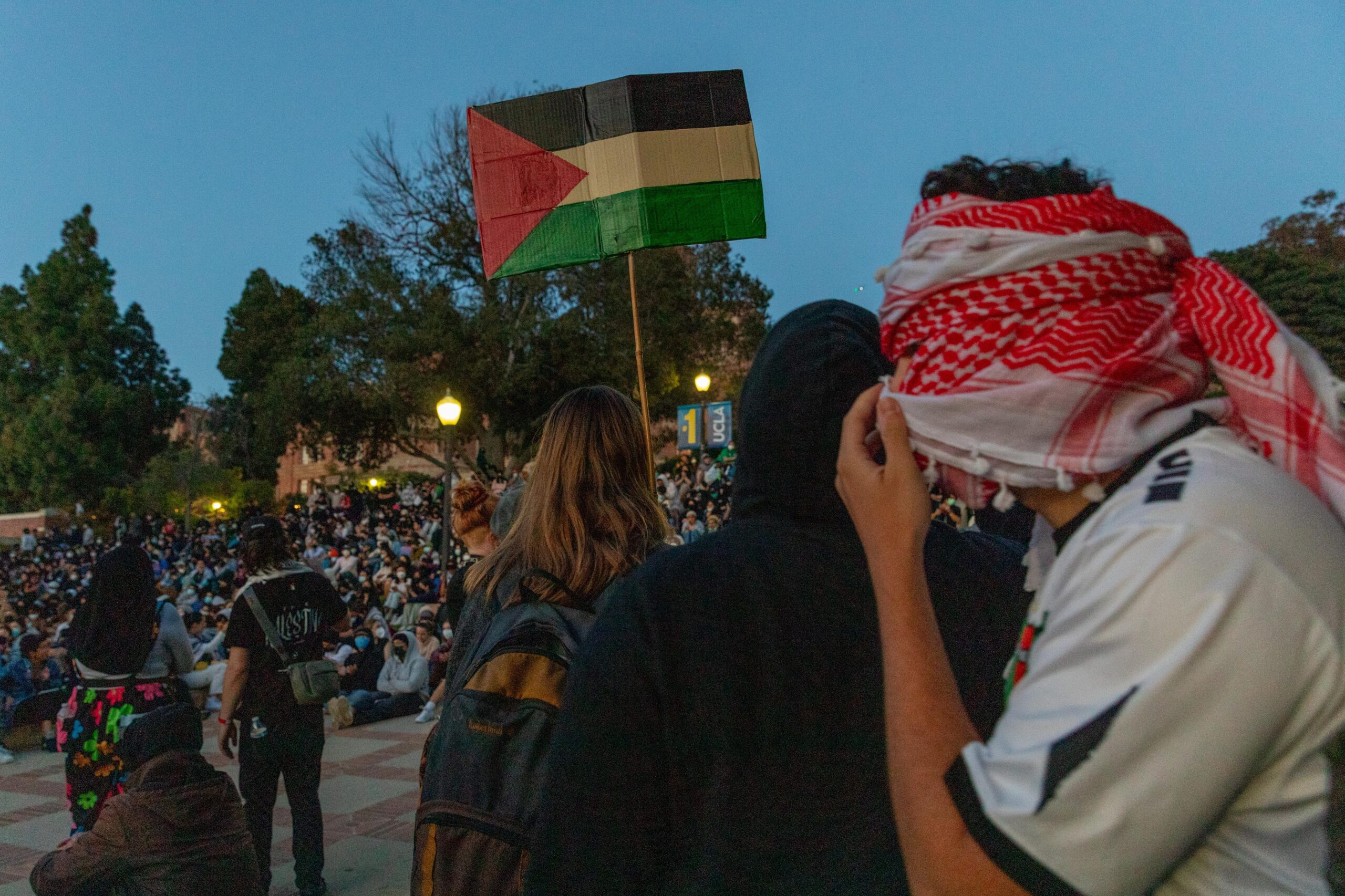Experts suggest federal judge’s ruling in UCLA antisemitism case could ‘reverberate’ at other schools
The California court ruled that Jewish students must be allowed equal access to all areas of campus

Grace Yoon/Anadolu via Getty Images
Pro-Palestinian students at UCLA campus set up encampment in support of Gaza and protest the Israeli attacks in Los Angeles, California, United States on May 01, 2024.
A federal judge in California ruled on Tuesday that UCLA must permit Jewish students equal access to campus spaces and events, finding that Jewish students who refused to denounce Israel were barred from accessing certain parts of campus by activists who erected a large anti-Israel encampment in the spring.
The ruling is set to have an immediate impact at UCLA, with campus administrators given just two days to adopt a policy that requires them to shut down access for all students to any part of campus where Jewish students are not allowed to enter. Beyond Los Angeles, advocates and experts argue the preliminary ruling’s impact may be much broader than simply affecting the policy of a single university.
“While this decision might only affect UCLA, it should reverberate across the country,” said James Pasch, senior director of national litigation at the Anti-Defamation League. “It is crucial for every university to know that their students cannot be banned from areas of campus or from organizations on campus for who they are, full stop. The decision by the judge doesn’t just hold weight in the UCLA case, but should set precedent for other similar fact patterns and cases where Jewish students are protected.”
Judge Mark Scarsi, a federal district judge appointed to the Central District of California by former President Donald Trump, began his ruling with a gut-punch to UCLA that struck many Jewish advocates concerned about antisemitism on American campuses as an example of clear-eyed truth-telling about the challenges facing Jewish students after the Oct. 7 Hamas terror attacks.
“In the year 2024, in the United States of America, in the State of California, in the City of Los Angeles, Jewish students were excluded from portions of the UCLA campus because they refused to denounce their faith. This fact is so unimaginable and so abhorrent to our constitutional guarantee of religious freedom that it bears repeating,” Scarsi wrote.
He continued by accusing UCLA of abandoning its responsibility to treat all of its students equally.
“UCLA does not dispute this. Instead, UCLA claims that it has no responsibility to protect the religious freedom of its Jewish students because the exclusion was engineered by third-party protesters,” Scarsi wrote. “But under constitutional principles, UCLA may not allow services to some students when UCLA knows that other students are excluded on religious grounds, regardless of who engineered the exclusion.”
Scarsi’s ruling is a preliminary injunction, issued before the case has concluded, but it reveals that he finds the Jewish students’ arguments persuasive. It doesn’t hold direct precedent for other universities. But it may still make its way into the hands of university general counsels.
“It is possible that some general counsels might say, Well, it’s just a district court opinion on a motion for injunctive relief, and so we’ll ignore it. That would be very unwise legal advice to give to a university,” said Mark Rotenberg, a former general counsel at the University of Minnesota and Johns Hopkins University.
“How would I advise the university?” asked Rotenberg, who is now a vice president and general counsel at Hillel International. “It seems to me that the best view of the law taking into account this decision is that universities, both public and private — meaning both under the Constitution and under Title VI — must take steps this fall to assure that Jewish students are not discriminated against in any program or opportunity afforded by the university to students.” (Title VI of the Civil Rights Act of 1964 requires institutions that receive federal funding, including most private universities, not to discriminate against anyone.)
“I think a ruling like this is going to give a lot of general counsels of universities pause to say, ‘We can’t tolerate this. This will land us in court. Students will prevail, and it won’t be the time of our choosing,’” said Miriam Elman, executive director of the Academic Engagement Network, which organizes university professors who support Israel.
The UCLA case is one of several being litigated in federal court regarding universities’ handling of antisemitism and campus protests over the past year. Earlier this month, another U.S. district judge in Massachusetts denied a motion by Harvard to dismiss a lawsuit filed by six Jewish students who claim the university ignored “severe and pervasive” antisemitism at the Ivy League university. The same judge dismissed a class-action lawsuit against Massachusetts Institute of Technology that said the university had reacted with “deliberate indifference” to antisemitism on campus.
Jewish communal leaders are hopeful that the preliminary ruling in the UCLA case, coupled with the Massachusetts judge’s refusal to dismiss the suit against Harvard, will remind universities that they need to more seriously address protests and antisemitic discrimination than they did in the 2023-24 school year, when the aftermath of Oct. 7 upended campus politics.
“I think that it’s a clear line in the sand, and it says you as a university need to, at the minimum, ensure the safety and access for all students, including Jewish students,” said Rabbi Noah Farkas, president and CEO of the Jewish Federation of Greater Los Angeles.
A UCLA spokesperson declined to comment. A representative of the university told The Los Angeles Times that the ruling would “improperly hamstring our ability to respond to events on the ground and to meet the needs of the Bruin community. We’re closely reviewing the judge’s ruling and considering all our options moving forward.” The university has indicated it will appeal the injunction.


















































